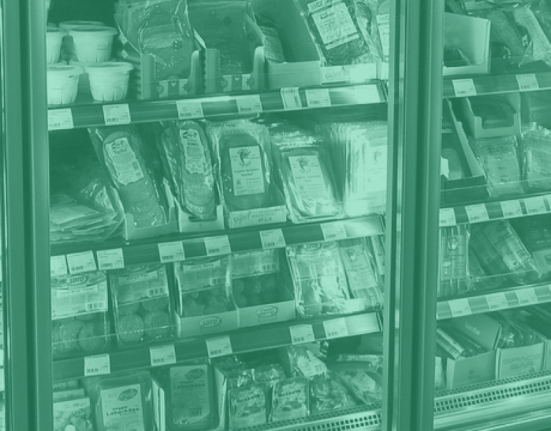Editor’s Note: A version of this blog is also published in National Liquor News.
When looking at alcoholic beverages, hard seltzer remains one of the essential drinks to watch out for. The Australian hard seltzer market grew 282 percent in 2021 to become a $210 million category, and now accounts for 16 percent of the RTD category.
We have been tracking this category for a few years now, as part of our RTD data series tracking, and have sent our network of mystery shoppers in-store numerous times between August 2020 and October 2022 to continuously monitor changes in fridge space allocation.
In the past, we have observed a growing number of brands launching hard seltzers to answer rising demand from consumers. Now, we see that consumers are willing to experiment even more, especially with regard to flavor.
Brand Proliferation Continues
While stores were only offering a few hard seltzer brands in August 2020, by February 2021, some stores were offering over 40 different brands across independent and national chains, with a mix of large manufacturers and smaller brands trying to tap into this relatively new category.
As the Australian market experienced such significant growth in the number of brands hitting the shelves, our team of shoppers tracked the trend’s evolution via store visits conducted between August 2021 and October 2022.
In August 2021, the number of hard seltzer brands per store averaged 4.5. The brand proliferation accelerated by August 2022 averaging at 6.3 brands per store (up to 24 brands in some stores with a peak during summer), demonstrating the growing popularity of this beverage in Australia and the increasing competition between brands to capture a share of the market.
After Brand Proliferation Comes the Proliferation of Flavors
Unlike some other traditional alcoholic beverages, hard seltzers have the ability to be infused with an ever-increasing range of flavors that makes them more appealing to many consumers. According to a recent survey by Nielsen, 41 percent of hard seltzer drinkers said they were interested in trying new flavors.
As the hard seltzer market in Australia continues to expand, larger players in the game are looking to capitalize on this trend by launching new and exciting flavors. While some smaller brands have opted for a basic range of two to four “mainstream” flavors, larger players like Rain Bird, Smirnoff, and White Claw are offering a much wider range of options, with up to nine different flavors.
Some of these flavors will be familiar to consumers, while others are more seasonal and exotic. Others tap into concurrent trends, such as Smirnoff’s Spicy Margarita hard seltzer flavor, which could be in response to the growing demand for cocktail-themed and tequila-based seltzers of the last 18 months.
This move toward more diverse options reflects consumers’ willingness to try new and innovative flavors. As the competition between brands heats up, it’s likely that we’ll continue to see even more unique and exciting flavor options hit the shelves.
Evolution of the Shelves In-Store
At the emergence of the category, we rarely saw hard seltzers blocked together, and they struggled to find a home on shelf.
Since then, we have seen the category’s share of space increasing, putting pressure on the rest of the fridge. Other categories have been directly impacted by this—for instance, cider and vodka-based RTDs—with some popular brands losing their premium eye level position to seltzer.
As seen at Bottlemart Beerwah in August 2021, already 3 out of 10 facings of cider-based drinks were replaced by seltzers since August 2020. A similar trend was observed at Cellarbrations Whitehorse Inn Hotel in January 2022, where hard seltzers have clearly taken over the cider-based spaces in fridges (picture 1).
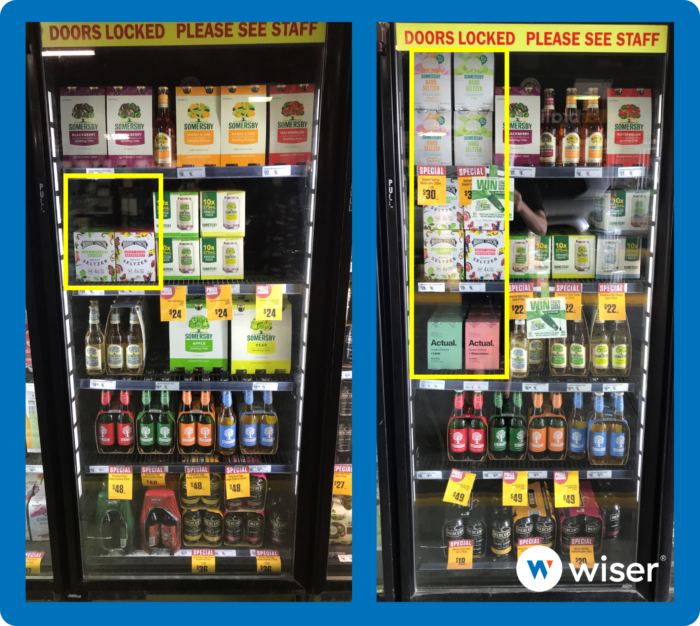
It seems like cider-based brands have tried to counter-attack by launching their own version of hard seltzers, with Somersby and Strongbow seltzers seen on shelf recently. Similarly, the renowned Australian wine-based West Coast brand also launched hard seltzers (picture 2).
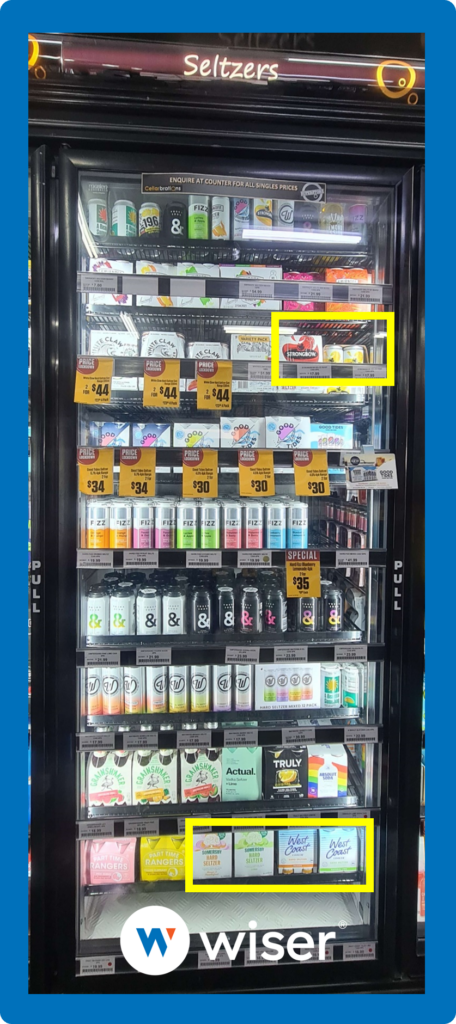
At Bottlemart Beerwah, hard seltzers’ share of shelf space has increased considerably between August 2020 and October 2022. While the number of brands has increased from two to 11 over the period, the shelf space has similarly increased by a factor of five, with almost one full fridge dedicated to seltzers. In parallel, we’ve seen the evolution in flavor range, with one to two flavors until August 2021, and then up to four flavors, especially for White Claw (picture 3).
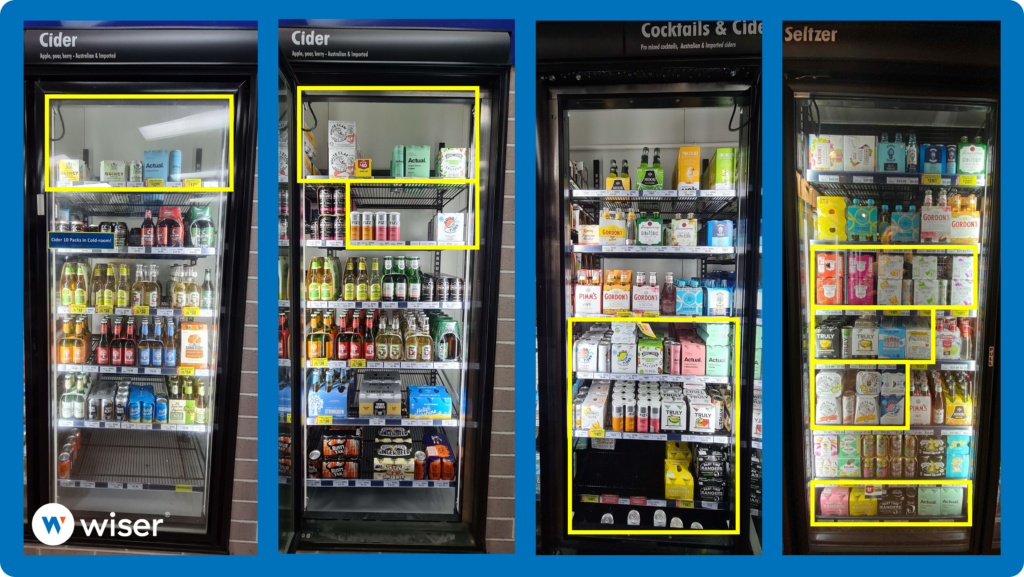
Similarly, at Sip’nSave Cross Keys Hotel in Cavan South Australia, share of shelf increased by a factor of 3.7 in the observed period (Sep 21 to Oct 22), with more than 75 percent of this space now at eye level. The number of brands also increased from three to eight over that period. Flavors have also proliferated, with some brands proposing up to four different flavors in October 2022 (picture 4).
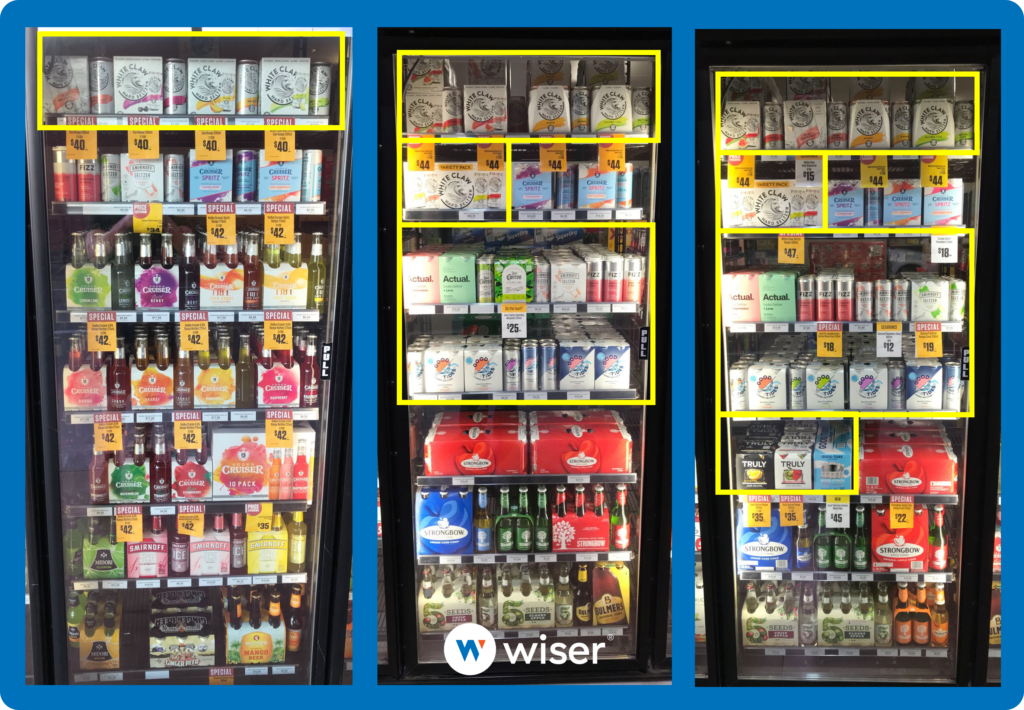
Aside from flavors, brands are also proposing different pack types—from single cans to “variety” or “mixed” packs for consumers to try out multiple flavors at once, which also takes more space in the fridges as often seen with White Claw and Smirnoff.
As stated in our previous National Liquor News articles, the growth of hard seltzer has put pressure on shelf space in the RTD category. Continued growth suggests that the trend is not slowing down, thus impacting adjacent categories and brands. Cider-based brands and wine-based brands have tapped into seltzers to tentatively protect shelf space.
The flavor proliferation has seemed to be faster with larger manufacturers, yet with consumers willing to try out new flavors, we should continue to see innovative flavors flourish. Retailers should keep looking at how innovations are impacting the category and sales, as the Australian market is expected to grow annually by 40.3 percent (CAGR 2023-2027).










